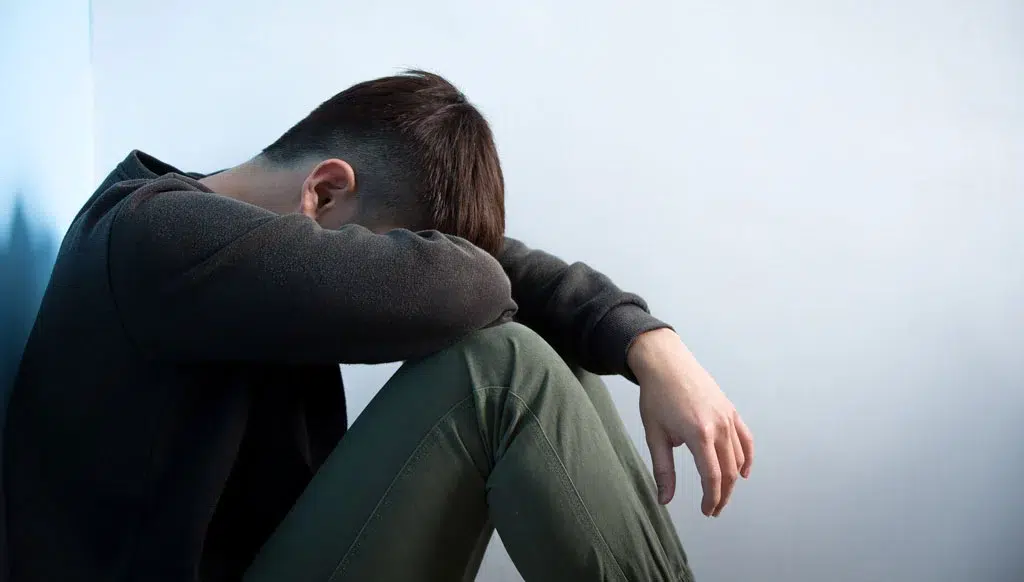
Unresolved Trauma
The Physical and Psychological Effects of Trauma
Table of Contents
Whether you were a victim of early childhood trauma or experienced something traumatic later in life, you need to focus on integrating it into your worldview. Unresolved trauma can lead to a variety of issues, both physically and psychologically. It makes it hard for you to function in your everyday life and may make it more challenging to navigate normal relationships with your loved ones.
Emerald Isle Health & Recovery can help you to process the traumatic events that plague you. Whether you need inpatient or outpatient treatment, our clinicians are well-versed in the many types of therapies that can help you to integrate your trauma. As a result, you may experience fewer symptoms and a renewed enjoyment of life.
Keep reading to learn more about unresolved trauma, and how to find effective forms of treatment with Emerald Isle Health & Recovery!
What is Unresolved Trauma?
Sometimes, we go through something that is so traumatic that our brains and bodies do not know how to process it. A traumatic event could be something life-threatening that happened to you such as an accident or childhood abuse. However, it could also be something that you witnessed happen to another person.

Unresolved trauma can stem from childhood, but that is not always the case. A traumatic experience can be relegated to the recesses of our minds at any age. Traumatic events such as natural disasters, war experiences, and even car crashes can all trigger your body’s natural defenses as they try to shut down the emotions that these events trigger.
If something signals to your brain that it could impact your overall well-being, it might be pushed down and repressed. The result is trauma that takes a physical and psychological toll on your day-to-day life.
Many people believe that their unresolved trauma will only affect them, but this is not true. Only you can tell what is going on inside of you, but it will impact everyone close to you. This is why it is so important to know how it manifests in your everyday life and what you can do to manage these symptoms.
Confidential Mental Health Assessment
Physical Symptoms of Unresolved Trauma
First, you might notice that you have physical reactions when it comes to remembering your trauma — or not remembering it, as the case may be. If you have never worked through the life-altering things that happened to you, then you might start to notice some of these physical signs that it is time to get professional help.
High Blood Pressure and Stress Hormones
One of the first symptoms that impact people who experience trauma relates to their overall stress levels. Many people with unresolved trauma find that they have a flood of stress hormones in their bodies, namely cortisol. Without bloodwork to prove it, you may never know that your cortisol levels are high apart from a constant feeling of being on edge or in a fight or flight state of mind.
It might be time to check your cortisol levels if you maintain routine high blood pressure. Stress can take its toll on your heart and the blood flow in the body. This puts you at a greater risk of heart attack, heart failure, aneurysm, and more.
Headaches and the PTSD Link
Some people with unresolved trauma also suffer from a common condition: frequent headaches. People who are in constant physical pain from headaches might find that medications designed for this condition do not touch the pain. This is sometimes referred to as a post-traumatic headache.
Approximately 30 percent of people with this type of headache also cope with post-traumatic stress disorder.
What is the link between headaches and trauma? Many physicians speculate that these headaches are the result of tension and stress in the body. Your head is unable to cope with the high levels of stress hormones and the physical tension carried in the neck and shoulders, resulting in a tension headache or migraine.
Trouble Sleeping (Insomnia or Nightmares)

Often, the body has a hard time processing trauma during the day. At night, when your body and mind are at ease, you might have a better chance of processing it. The problem is that this can make it extremely difficult to get a good night’s rest. Many people with unresolved trauma experiences suffer from insomnia.
Insomnia makes it difficult for a person to get the restful sleep they need. They might be awake for hours on end, ruminating over the events they have trouble processing. It could feel a lot like anxiety, as your brain circles around the experiences that have brought tension into your life.
On the other hand, those who are able to fall asleep may cope with nightmares. Nightmares are a double-edged sword. They are known to strengthen PTSD symptoms which in turn leads to more nightmares. The result is that you feel tense and on edge from lack of rest all day long.
Digestive Issues or Extreme Nausea
Many people who cope with anxiety disorders find that they have one symptom in common: gastrointestinal issues. Your body has a much harder time processing food when mental health concerns are at play. This can really take a toll on your physical health as you will not be able to eat or digest to the fullest capacity.
One research study indicated that about one-fourth of all people with a PTSD diagnosis had a non-malignant GI diagnosis as well.
Intense emotions can really take a toll on your appetite, can trigger feelings of nausea or lead to vomiting, and even cause upset stomach and diarrhea. Be mindful of how some of the same symptoms can pop up if you have unresolved trauma in the background of your mind.
Chronic Lower Back Pain
While some of the other side effects of trauma might make sense, chronic pain in the lower back is not one that most people immediately pinpoint. However, it is extremely common in people with a PTSD diagnosis. More than half of all patients with lower back pain also have some of the most common symptoms of unresolved trauma.
This turns into another vicious cycle: the pain reminds them of the trauma, which in turn makes the memories worse. As the memories worsen, the pain continues to plague them, resulting in an endless cycle until you can treat the underlying trauma.
Chest Tightness or Stomach Tightness

If you experienced something traumatic in the past, you might find that you are still holding on to it in the most unlikely places. Many people who struggle with anxiety over a traumatic event will find that they hold this tension in their bodies, namely in the chest or stomach.
It might feel so uncomfortable and lead to a panic attack, which causes many people to head to the emergency room for a suspected heart attack. Upon arrival, they may be told that it is just anxiety. This feels extremely frustrating to most people who feel that their concerns may not be heard by professionals.
Mental Health Inpatient – Help is Available!
8 Psychological Factors of Unresolved Trauma
The physical effects of developmental trauma, betrayal trauma, and other types of horrible memories are important to note. However, the impacts on the psyche are equally important to know, especially when it comes to the healing process. There are countless invisible ways that experiencing trauma can impact you, and here are just a few.
1) Hypervigilance and Exhaustion
One of the first symptoms that often impacts people who have unresolved trauma is the impact of hypervigilance. They might need to know what is going on at all times or where the nearest exits are. You might find yourself constantly scanning your surroundings for any indication that a threat is present. Hypervigilance also increases your overall anxiety levels.
In turn, this constant need to be on your toes exhausts you. If you are also struggling with difficulty sleeping, your exhaustion will be compounded.
2) Dissociation and Lack of Emotion
Some people have intense mood swings as a result of their trauma, but others have the opposite issue. It is quite common to find that people who have unresolved trauma also have issues with dissociation and numbness. This is a feeling of being set apart from what is happening in your day-to-day life.
It could feel like an out-of-body experience as if you are watching what is happening to you instead of participating in it. As a result, the mind body connection may be disrupted and you could have fewer emotions regarding your unresolved trauma.
3) Self Harm Becomes More Common
Destructive behaviors such as self-harm are a part of the usual discussion of unresolved trauma. According to some studies, this is much higher in people who experienced childhood sexual abuse. One study found that in a group of people engaged in self-harm, more than 90 percent had experienced childhood sexual abuse.
Keep in mind that this is not the only precursor to self-harm though.
Self-harm can take many forms from cutting to any other type of bodily abuse. This type of physical harm is not intended as a means to suicide, though some people with unresolved trauma will also suffer suicidal ideation. Instead, self-harm is a way to decrease the numbness that comes from dissociation, as a way to “punish” themselves, or to reduce negative emotions.
4) Flashbacks Involuntarily Trigger Reactions
When it comes to your traumatic experiences, you might find that you have repeated intrusive thoughts. These can be triggered by reminders of the event in your everyday life, but this is not always the case. Instead, some people find that they are triggered by emotions, a certain family member, or certain events that have something in common with the trauma.
When this happens, you might become stuck in a feedback loop with flashbacks. These are often pain free, but they can cause you to dissociate further from what is going on in your life. You might see the trauma play out in your mind.
However, many people also feel the trauma physically in their body as well. This can trigger the same emotions that took place at the point of trauma: extreme fears, anxiety, stress, and more. It might feel as though you are right back in your traumatic experiences with all of the difficult emotions that it brings to the surface.
You may need professional help from skilled therapists to help you break the cycle of these flashbacks. At Emerald Isle Health & Recovery, we can help.
5) Substance Use Disorder or Co-Occurring Mental Health Concerns

If you experience some of the other telltale signs of unresolved trauma or complex PTSD, you might simultaneously have another co-occurring mental health concern. It can impact your entire life, making it more likely that you will struggle with substance use in the form of drugs or alcohol. It is much more difficult to treat substance use until the underlying trauma has been resolved.
With that being said, you might also experience other psychological factors that can exacerbate your unresolved trauma. When a terrible event happens to you, it can spark feelings of both anxiety and depression. Many people will also develop post-traumatic stress disorder (PTSD), which encompasses many of the symptoms found here.
The good news is that there is health and healing, regardless of what co-occurring mental health concerns you may have. Emerald Isle Health & Recovery is here to help you with your PTSD through inpatient care, partial hospitalization, and outpatient programs.
6) Low Self Esteem Leads to Poor Relationships
Oftentimes, someone who has experienced trauma tends to develop a low sense of self-worth. They may blame themselves for what happened to them, even if it was clearly external (like car accidents or even surgery). As self-esteem plummets, many people get caught in the cycle of feeling completely worthless.
Because people experience lower levels of self-esteem, this can lead to broken relationships. You may not feel like you are worthy of close friends or might feel as though you are a burden to the people around you. While this could not be further from the truth, it is an issue that impacts people with unresolved trauma on a regular basis.
On a related note, unresolved trauma also makes it more likely that you will turn away from the people in your life. You might have a hard time trusting them to protect you or to be good to you as a result of traumatic events in your life. Pushing people away can feel much safer and easier, though it leaves you feeling isolated. As a result, this leads to deeper depression and even lower self-worth.
7) Inability to Relinquish Control
On the flip side of this, you might also struggle to relinquish control over certain aspects of your life. Because you had very little control over the traumatic event that happened to you, you may find that you go to great lengths to control every other aspect of your life. This can make it hard for people to work with you or to be around you. After all, you cannot control what other people will do.
The result is that you continue to suffer from relationships that are not as vibrant as they could be. You will need help to repair those relationships, which is where family therapy can come into play. Emerald Isle Health & Recovery offers family therapy sessions to help you start to trust other people to make solid decisions and undo some of the damage that has been done throughout your healing process.
Eventually, you might even start to find that you are more comfortable with not knowing what comes next. Anxiety management can help.
8) Anger Issues and Lack of Emotional Control

Do you have a hard time when you need to tolerate conflicts? If unresolved trauma is left untreated, you will likely have a sense that you become angrier much more quickly. Daily struggles with anger are extremely common, making you feel volatile. It might lead to an increase in isolation as people try to avoid sparking your wrath.
In addition to your overwhelming anger, you may also have a problem with mood swings. Old wounds can lead to moods that cartwheel quickly. You might move from happiness to anxiety to depression in a matter of moments. This volatility is uncomfortable for you, but it is also hard for the people in your life.
This is one reason to seek help from medical professionals like those you will find at Emerald Isle Health & Recovery.
Immediate Placement for Trauma Treatment
Get Help for Unresolved Trauma and Find Joy
Are you experiencing any of the above symptoms along with an experience of something traumatic? Many people have a hard time pinpointing the trauma in their life because it is hard for them to think about or cope with it. As a result, they may need to turn to professional guidance like that offered at Emerald Isle Health & Recovery.
Our skilled team of mental health professionals is ready and waiting to help you resolve your trauma and minimize the symptoms found here. We offer inpatient treatment if you need an intense, short-term option. However, we also offer partial hospitalization and outpatient treatment for those who prefer a less intense setting.
Contact us today for a confidential consultation and to learn more about how we can help you with your trauma!








